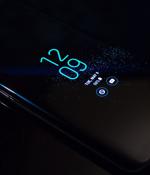Security News

Kyivstar, Ukraine's largest telecommunications service provider serving over 25 million mobile and home internet subscribers, has suffered a cyberattack impacting mobile and data services. "This morning, we were the target of a powerful hacker attack. It caused a technical failure, as a result of which services were temporarily unavailable," reads a statement from Kyivstar.

A U.S. senator revealed today that government agencies worldwide demand mobile push notification records from Apple and Google users to spy on their customers. Data collection through this method helps link devices to Apple or Google accounts and may also allow access to unencrypted notification content, including text displayed on the receiving smartphone.

Lyca Mobile has released a statement about an unexpected disruption on its network caused by a cyberattack that may have also compromised customer data.In response to the situation and to determine the impact on customer data, Lyca Mobile says it has launched an urgent investigation that involves third-party IT experts.

Infosec in brief T-Mobile has had another bad week on the infosec front - this time stemming from a system glitch that exposed customer account data, followed by allegations of another breach the carrier denied. According to customers who complained of the issue on Reddit and X, the T-Mobile app was displaying other customers' data instead of their own - including the strangers' purchase history, credit card information, and address.

T-Mobile has denied suffering another data breach following Thursday night reports that a threat actor leaked a large database allegedly containing T-Mobile employees' data. The mobile carrier told BleepingComputer that the leaked data is believed to belong to an authorized retailer, which was breached earlier this year.

Today, T-Mobile customers said they could see other peoples' account and billing information after logging into the company's official mobile application. According to user reports on social media, the exposed information included customers' names, phone numbers, addresses, account balances, and credit card details like the expiration dates and the last four digits.

Mobile Verification Toolkit is a collection of utilities to simplify and automate the process of gathering forensic traces helpful to identify a potential compromise of Android and iOS devices. MVT supports using public indicators of compromise to scan mobile devices for potential traces of targeting or infection by known spyware campaigns.

The Feds didn't go as far as naming any specific vendors or services here, but one of the main reasons that crooks go down the "Beta-testing" route is to lure users of Apple iPhones into installing software that didn't come from the App Store. In contrast, even iPhone apps that are 100% free must be submitted by the vendor to the App Store to become available for download, and downloaded by the user from the App Store for installation.

The FBI is warning of a new tactic used by cybercriminals where they promote malicious "Beta" versions of cryptocurrency investment apps on popular mobile app stores that are then used to steal crypto. The threat actors submit the malicious apps to the mobile app stores as "Betas," meaning that they are in an early development phase and are meant to be used by tech enthusiasts or fans to test and submit feedback to developers before the software is officially released.

Ivanti has disclosed yet another security flaw impacting Endpoint Manager Mobile, formerly known as MobileIron Core, that it said has been weaponized as part of an exploit chain by malicious actors in the wild. "This vulnerability can be used in conjunction with CVE-2023-35078, bypassing administrator authentication and ACLs restrictions."